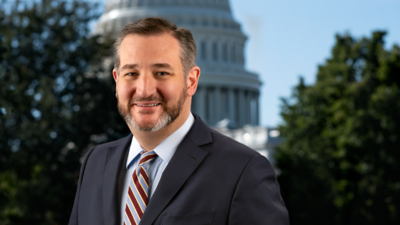Chicago GOP Chairman Steve Boulton | Twitter/Steve Boulton
Chicago GOP Chairman Steve Boulton | Twitter/Steve Boulton
Chicago GOP Chair Steve Boulton is criticizing the City of Chicago for not making a smooth transition to a Chicago School Board.
“We don’t have district boundaries, we don’t know if the City Council will have any role in filling School Board vacancies, we don’t even know the deadlines for candidates to file or the voting procedures,” Boulton said.
He said statements previously released in support of campaign spending caps were "obviously just talk.”
“Springfield Democrats kicked the can on the elected Chicago School Board bill to play politics," Boulton added. "On top of that, they are killing off school choice at the demand of the Chicago Teachers Union by refusing to renew the Invest in Kids Act, which has served more than 40,000 Illinois students since the program's kickoff in 2018, allowing children to escape any failing public school district in Illinois and permitting parents to choose their child’s education.”
Illinois Policy reports Chicago is undergoing a transition from an appointed to an elected school board, which will eventually expand to a 21-member elected board. The first election for the school board is scheduled for November 2024. In the initial election, voters will choose 10 members from 10 districts, while the mayor will appoint the remaining 11 members, including the board president. The subsequent 2026 election will feature 20 single-member districts, with voters electing representative members, and the 21st member acting as board president will be elected citywide. However, the release of the proposed district maps has sparked controversy. Advocates argue that the maps underrepresent minority students and fail to reflect the demographics of Chicago Public Schools students. Additionally, concerns have been raised about noncitizen residents not being eligible to run or vote in the board elections. Revisions to the proposed map have been made, but advocates have rejected them, and the General Assembly has until July 1 to pass a final map.
WTTW’s Amanda Vinicky reported that the transition has encountered challenges and criticism. The process of drawing the 20 districts for the elected board has been criticized for its lack of transparency and potential to divide communities, particularly those of color. The initial draft map was deemed unsatisfactory, with concerns raised about the underrepresentation of Latino and Asian students. The revised version still faced criticism for districts that span too far, insufficient Latino majority districts, and a lack of Asian plurality districts. Public advocates and parent organizations have called for a new map and have urged lawmakers to postpone the vote or hold a special session to address the issues.
Boulton’s criticism of the loss of school choice opportunities provided by Invest In Kids comes as the popular tax scholarship program was not included in Illinois' 2024 budget. The Chicago Teachers Union and other teacher unions are blamed for the program’s cut from the budget. Union-backed Illinois Families for Public Schools issued a statement opposing tax-credit scholarships in the state. The coalition argues that ending tax-credit scholarships would eliminate one of the few options available for low-income students who struggle in public schools.
Mayor Brandon Johnson is also a veteran lobbyist for the Chicago Teachers Union, which paid him directly before his election. He has advocated for letting the program expire. The Invest in Kids Tax Credit Scholarship program provides scholarships to low-income students, allowing them to attend private schools that better suit their needs. The scholarships are funded by donors who receive an income tax credit equal to 75% of their donation. Since its inception in 2018, the program has awarded over 37,000 grants worth $280 million. Supporters argue that the scholarships alleviate overcrowding in public schools and help save government funds since the scholarships reduce the need to educate students for whom tax revenue is still being provided. Despite the program's relatively small budget allocation of $75 million, Governor J.B. Pritzker has pulled support for Invest in Kids, citing increased public-school funding.





 Alerts Sign-up
Alerts Sign-up